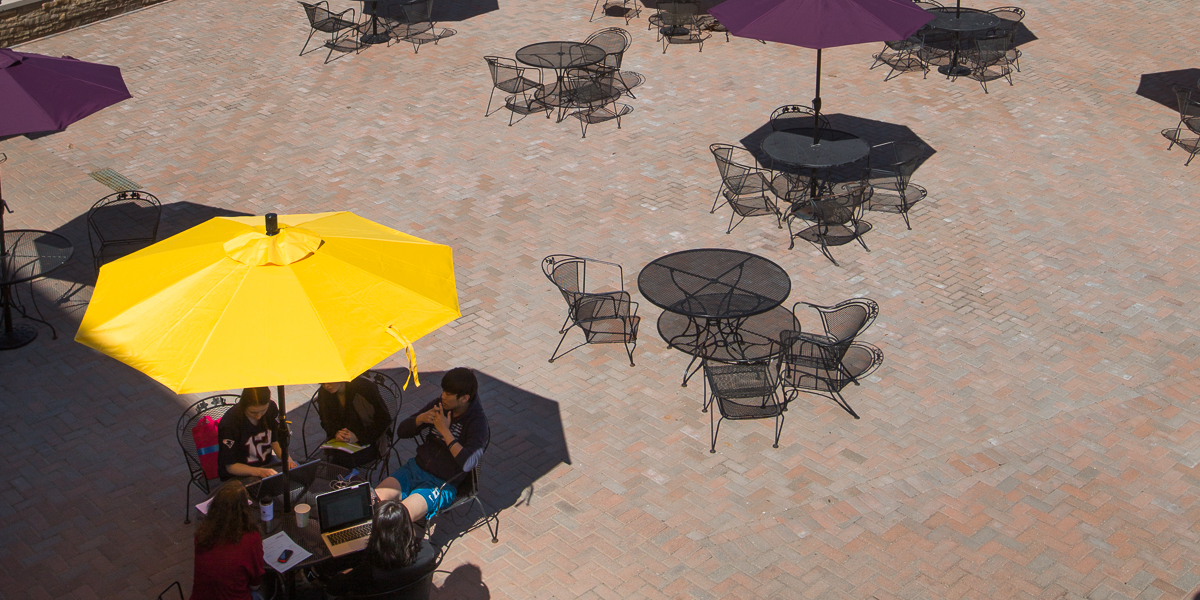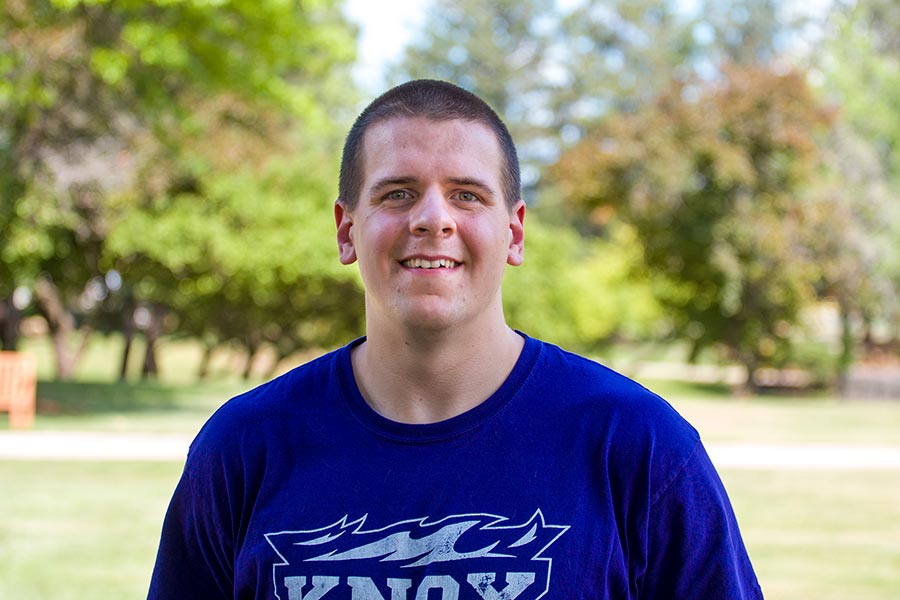

Venture Boldly

Office of Communications
2 East South Street
Galesburg, IL 61401

Woodridge, Illinois
Major in Computer Science, Minor in Economics

What have you been up to since Knox?
Since my graduation from Knox in the Spring of 2018, I have been developing life insurance and annuities software for LIDP, which is based just outside of Chicago and is a family-owned firm that treats its employees like family. My company offers incentives to take online courses about the various types of life insurance, retirement, and annuities products which has helped deepen my understanding of how the software is intended to work from a business perspective. Similar to the collaborative experiences and growth opportunities I enjoyed at Knox, LIDP values teamwork and offers education to increase my knowledge about the industry and keep me challenged.
How has your Knox experience made an impact on your career?
Every day that I come into work, I find that my Knox experience is much more impactful than I’d ever thought it would be. Some of the principles that I learned from my computer science courses often come up such as prioritizing feature implementations to meet client deadlines, working with teams on a large project, and designing interfaces to meet the end user. The problems in the system that I’m developing are complex but my CS courses at Knox have taught me how to eliminate clutter until the problem is clearly visible.
You were involved in a lot of extracurriculars at Knox. How did those prepare you for your work?
At Knox, I had to balance multiple activities, from Alpha Phi Omega to being on the swim team. Having the flexibility to participate in several activities at once was beneficial for exploring my interests. In my career, having soft skills such as reliability and work ethic take precedence over talent, so I’m appreciative of the space that my extracurricular activities gave me to make mistakes in order to prepare me for the challenges of the real world.
Why did you choose Knox?
I chose Knox because its small class sizes provided a space for me to share my ideas directly with open-minded professors. The vibrant classroom discussions, innovative learning exercises, and personalized learning methodologies stood out when I made my college visits back in 2014, leading me to decide on Knox. The interaction between the student and professor was key to my decision, and my one-on-one connection with Professor Bunde proved to be particularly helpful on a computer science research project that significantly improved my preparation for a career in software development. Other reasons for choosing Knox include easy and accessible logistics (Amtrak on the edge of campus is super convenient), the swim team with an awesome coach who is tenured in economics, and opportunities for community service and leadership.
How did Knox help shape you into who you are now?
Two summers of research on supercomputers with Professor Bunde and building projects with a myriad of programming languages gave me a first look at what it might be like to work in the computer science industry. To grow my experience and begin developing a resume, I took advantage of opportunities to work in campus jobs as a teaching and computer lab assistant. In my current role as a software developer, I constantly have to learn new ideas–one week I can be writing calculation programs, then the next week, working on web development. Knox shaped me to be agile, open to learning, and taught me how to constantly think on my feet. I learned about the efficiencies of being proactive, rather than reactive when exploring complex solutions to problems. Additionally, my Knox experience motivated me to seek a work environment where idea-sharing and collaboration are valued. To summarize, Knox shaped me to always try to achieve a better version of myself and pay it forward, sharing what I’ve been fortunate enough to learn with others.
What is your favorite Knox memory?
This question is difficult to answer since there are so many wonderful memories to reflect on. Having the chance to study abroad at DeMontfort University in Leicester, England, during the fall term of 2016, and to be advised by David Elizondo ’86 was certainly a highlight of my Knox experience. While in England, I enjoyed travel opportunities through student programs and visited Stonehenge, Scotland, and Oxford. I also participated on a local swim team, which helped me feel connected to the community. In my free time, I attended local rugby and soccer games. Leicester’s soccer team were on their way to becoming Premier League champions at the time, so it was fun to get caught up in that excitement!
Participating in Knox’s Best Buddies program was also very meaningful. I have a brother, Charlie, who has a developmental disability and has benefited from Best Buddies through the years, so it was very natural for me to join this group. Ironically, I was partnered with a Galesburg resident named “Charlie,” and we became fast friends over art projects and other activities.
Did you have a coach, or other mentor, from Knox that was particularly instrumental in your life?
I credit my Knox swim coach Jonathan Powers (JPow) for his balanced approach to swimming, which prevented burnout and is the reason why I am still swimming today. As a tenured economics professor, JPow was a great mentor and allowed his team to go easy on practice when studies got demanding. While it always feels good to win, JPow’s philosophy valued individual journeys. He respected where people were at as he wrote workouts that were tailored toward helping swimmers achieve personal goals. JPow also emphasized the importance of teamwork and often paired swimmers of different speeds so each could learn from one another. It was a model that promoted reciprocal leadership, which is a way of thinking that has carried over into my life and career. In my role as a software developer, I am fortunate to work in an environment where I can teach but also learn from others every day.